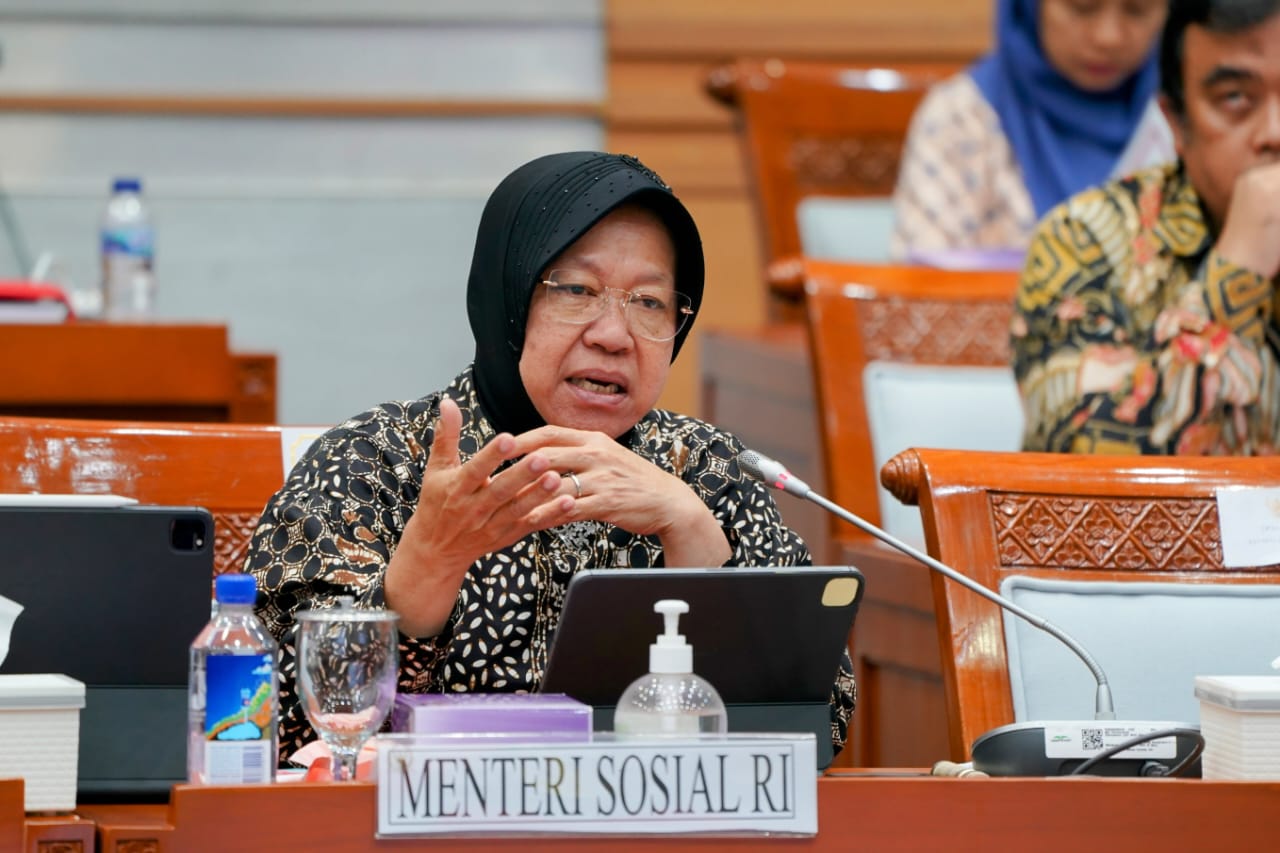Distribution of Basic Food Assistance and PKH from MoSA Reaches 98%

Jakarta, 7 November 2023 – Ministry of Social Affairs, until early November 2023, has distributed Non-Cash Food Assistance (BPNT)/Sembako (Basic Food) and Family Hope Program (PKH) to Beneficiary Families (KPM). The realization of these two programs reached 98%.
In BPNT/Sembako program, distribution success
was recorded at 99.23% of the target of IDR 45.12 trillion, with transactions
of 98.08%. Meanwhile, PKH recorded channel success at 98.20% of the
target of IDR 28.70 trillion, and transactions at 97.30%.
Minister of Social Affairs Tri Rismaharini said
that there was a difference between channel and transaction success because
there were beneficiaries (KPM) who had not made
transactions. "Because we have distributed it through the bank,
but there is no transaction," said the Minister.
To increase transactions, MoSA asked companions
in the field to help KPM overcome transaction difficulties. Apart
from that, distribution via PT Pos is also a solution to facilitate KPM
transactions in hard-to-reach areas. PT Pos came to the KPM house to
distribute aid directly.
This budget absorption for social assistance
supports the realization of Ministry of Social Affairs' 2023 budget by 79%,
from a budget ceiling of IDR 79,419,425,895,000. Minister of Social
Affairs said that MoSA budget is projected to be absorbed up to 99.10% by the
end of 2023.
Minister of Social Affairs presented this
explanation regarding the condition of MoSA budget when attending Work Meeting
of Minister of Social Affairs with Commission VIII of the House (DPR RI), with
an agenda for evaluating the 2023 fiscal year program and budget, the 2024
fiscal year program and budget plan, and actual issues, at DPR RI Building,
Senayan, Tuesday (7/11).
Apart from explaining the realization of the
budget, Minister Risma also presented the additional budget for Fiscal Year
2023 before Commission VIII DPR RI. This additional budget includes
several programs, including assistance for sufferers of Atypical Progressive
Acute Kidney Disorders (GGAPA) in children and El Nino Direct Cash Assistance.
The Minister said that assistance for acute
kidney disease sufferers would be provided to 326 people, with details of 204
people dying and 122 people recovering. Assistance for those who die
will be given to the heirs with a value of IDR 50 million, while those who
recover will receive assistance of IDR 60 million. The total aid
budget for acute kidney disease sufferers is IDR 19.22 billion.
"Those who have recovered are still being
treated and we are asking for more so that there are more than those who
died," said the Minister of Social Affairs.
Meanwhile, El Nino Cash Transfer (BLT) is
budgeted at IDR 7.52 trillion. BLT El Nino will be given to
18,800,000 Beneficiaries and each of them will receive cash of IDR 200,000 per
month. BLT El Nino is given for two months so they will receive a
total of IDR 400,000. However, Minister of Social Affairs said that
data on El Nino BLT recipients would still be discussed again with Ministry of
Finance because the additional budget had not yet been included in the Budget
Execution (Allotment) Document or DIPA of MoSA.
"The initial data is 18.8 million for two
months. IDR 200 thousand each. So, to clear the data, we will communicate with
MoF first about the number of recipients," said the Minister of Social
Affairs when stating to the media after the meeting.
Meanwhile, Commission VIII of the House
appreciated MoSA budget absorption which reached 79%. Besides that,
the people's representatives fully support the distribution of BLT El Nino and
hope that this assistance will be provided to the affected communities.
"We support BLT El Nino because it can help
people face climate change. For distribution, it is better to channel it
through PT Pos," said a member of Commission VIII of the House, TB Ace
Hasan Syadzily.
Members of Commission VIII encouraged Ministry
of Social Affairs to review the data on recipients of El Nino assistance,
especially its impact which could create new poor families that have not been
recorded in Integrated Social Welfare Data (DTKS).
 English
English
 Bahasa
Bahasa
